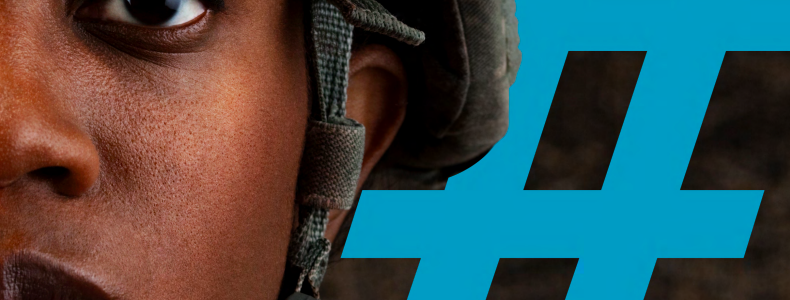CNN: Coronavirus threatens a guarded tradition for many black Americans: Voting in person
Check out Way to Win VP Jenifer Fernandez Ancona in the article below!
By Abby Phillips
CNN – May 9, 2020
For weeks leading up to Election Day in 2018, Terence Gragston’s cell phone rang constantly. Cincinnati residents, many of them strangers, called requesting a ride to the polls for early voting.
“It’s one of the most basic forms of exercising your power as an individual,” Gragston told CNN. “My grandmother taught me that.”
Gragston’s grandmother June Gragston, like many older black women, dutifully voted in person — early, on the first day she could. Her sister, Gragston’s great aunt Vera Mundy, preferred to walk herself there.
“Every election I would call her and say: ‘Hey auntie do you need a ride to the polls?’ She’d say: this is my exercise. This is the one thing I know I’m going to do on this day,” Gragston said.
For millions of black voters across the country, like Gragston’s grandmother and great aunt, voting in person has been a guarded tradition — a right earned after decades of strenuous and bloody fights.
But this year, much of that could be upended by Covid-19, which has savagely ripped through black neighborhoods and counties at disproportionate rates, leaving illness death and fear in its wake.
As Democrats seek to expand access to mail-in voting across the country in light of the coronavirus, they are also grappling with a sobering reality that absentee voting won’t be panacea for black voters, the party’s most reliable constituency.
Experts say black voters are less likely to have had experience with absentee voting processes and are less likely to trust the government institutions to handle their votes in the mail. They are also more likely to have their ballots thrown out when they do vote by absentee ballot either because of confusion about how to properly fill out absentee ballots or because of the amount of discretion election workers have in determining whether the person’s signature on file matches the one provided on the ballot.
Some researchers have also found evidence that racial bias may lead to black and Hispanic voters being less likely to receive assistance from election officials with filling out their ballots properly.
And with social distancing measures in place across the country, face-to-face community based get out the vote efforts that are crucial to Democrats’ outreach to these voters are no longer an option.
Gragston, an Iraq war veteran and a former candidate for state office in Ohio, has helped organize “Souls to the Polls” drives in Cincinnati for past presidential and midterm elections — working with the help of national organizations like the NAACP and his fraternity Alpha Phi Alpha Inc., to encourage voters to take advantage of early voting in the state of Ohio.
This year, because of the threat of coronavirus, he plans to offer to deliver absentee ballot applications to voters rather than drive them to the polls.
“It will be a hard turn for a lot of people,” said Gragston. “For people who lack access to the internet, they can’t get online to apply for their absentee ballot. And then there are older folks who are not as technologically savvy.”
All of this has raised concerns among Democrats that in order to maintain or increase black turnout in November, they will need to ensure that there are safe in-person voting options and dramatically ramp up absentee ballot education targeted at minority voters.
“It’s not the silver bullet that’s going to make sure that everyone who wants to vote, will,” Tory Gavito, co-founder and president of Way to Win, a progressive group that channels donor money into grassroots organizing efforts across the county. “It’s a tactic that we have that we still have to build education around.”
Way to Win has spent $3.7 million in the last few weeks on Covid-related measures, including digital organizing and vote-by-mail outreach targeted at minority voters.
Among them, digital voter engagement efforts in North Carolina and Arizona, two states that Democrats see as critical to their presidential and Senate hopes. But the two states present radically different challenges. In Arizona, 75% of voters use mailed-in ballots in 2016. But in North Carolina, just 4% of voters cast their ballots that way.
States like North Carolina, which is 22% black, present a challenge for Democrats who hope demographic trends will allow them to keep the Tar Heel state competitive in 2020.
Voting by mail is more restrictive in North Carolina. The state requires absentee ballots to be witnessed by two people or a notary public.
There and in other parts of the country, the act of physically going to the polls individually or as group — sometimes literally leaving the church pews to drive on buses to the polling place — is a communal tradition among some black Americans. It has also become key to get out the vote efforts among non-partisan voter mobilization groups and Democratic organizations across the country.
“Culturally voting in our community is a big deal to the point that some elderly people in our community dress up to go vote,” said LaTosha Brown, founder of Black Voters Matter. “We want to make sure that we have mail-in ballot voting as an option.”
“We also want to make sure that there are additional options as well — that there are some sites throughout our communities that remain open so that those that want to vote in person can vote,” she added.
Beyond the challenge of coaxing voters to break long-held habits, there is also the issue of trust. Minority voters are skeptical of trusting mail delivery services and ballot verification processes with their ballots. And for good reason.
A study by researchers at the University of Florida and Dartmouth College found that in Florida, non-white voters, younger voters and voters needing assistance were more likely to have their vote-by-mail ballots rejected than white voters, based on a review of vote by mail ballots cast in 2018.
“They have concerns about the confusion. People have concerns about their ballots not being collected,” said Adrianne Shropshire, executive director of BlackPAC, a progressive super PAC that has helped fund black voter outreach in states across the country. “People have concerns and would prefer to vote in person.”
BlackPAC made a name for itself mobilizing black voters with face-to-face appeals that powered Democrat Doug Jones to victory in the Senate special election in ruby red Alabama in 2017, and helping elect Virginia Gov. Ralph Northam that year as well.
Last month, BlackPAC conducted their own research to gauge attitudes among black voters toward mail-in voting and found black voters largely had little or no prior experience with voting by mail and nearly half worried that their mail ballots would not be counted.
Shropshire said there are potential “unintended consequences” of overly emphasizing mail-in voting alone, which could result in lower turnout among critical constituencies for the Democrats.
“Elections and voter mobilization in black communities are a communal collective activity. There is a cultural dynamic that is at play here that is being affected, that’s part of the challenge with vote by mail,” Shropshire said. “We have to find ways to recreate that collective political action.”
This reality has increased the pressure on Democrats to ensure that while they push in courts and legislatures for expanded access to mail-in voting — especially for vulnerable populations — they must also push a multi-faceted approach that addresses all the potential barriers to voting no matter which method voters choose.
That includes pushing for changes to physical voting locations that make voting in person safer, expanded in-person early voting options, drive-through voting and appointment voting for vulnerable populations.
“While Democrats champion vote by mail, we do think that for some voters, some of our most loyal voters, African American voters, there’s a clear history of not using it as much,” said David Pepper, chairman of the Ohio Democratic Party. “One of the lessons for the fall has to be that we have to eliminate unnecessary hoops to get the ballot. A ballot should be sent to every registered voter. Postage should be prepaid. And there needs to be as much public education about the process as possible.”


